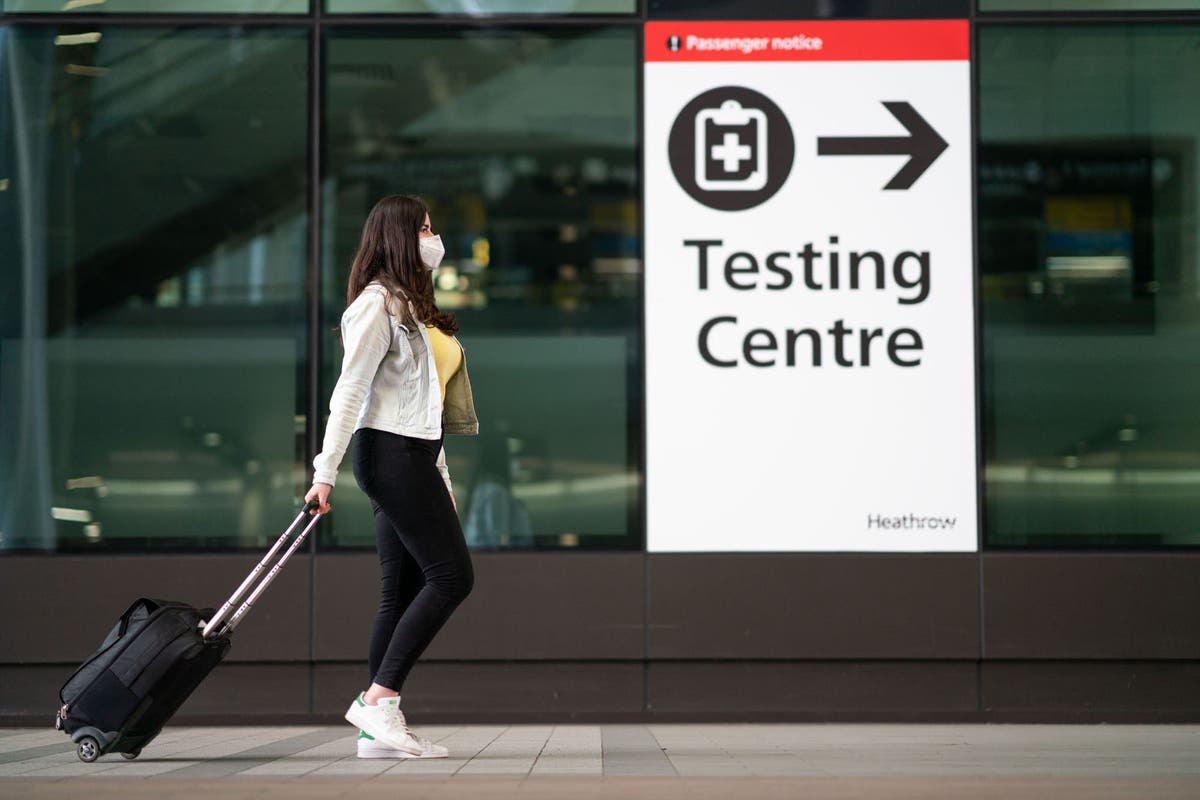This website uses cookies so that we can provide you with the best user experience possible. Cookie information is stored in your browser and performs functions such as recognising you when you return to our website and helping our team to understand which sections of the website you find most interesting and useful.

Passengers from China who arrive in the UK next week will not face compulsory Covid tests on arrival, it can be revealed.
In stark contrast to other countries, testing at Heathrow airport will be voluntary, and those who test positive will neither be quarantined or ordered to self-isolate.
The government is bringing back travel restrictions for passengers from mainland China – excluding Hong Kong – on Thursday 5 January. They must present a negative test before boarding a direct flight to London Heathrow or Manchester, currently the only two arrival points.
Since Beijing abandoned its “zero Covid” policy, the virus has spread through the People’s Republic. Beijing plans to ease international travel restrictions on 8 January, allowing more citizens to leave.
Ministers fear the sudden changes increase the risk of a dangerous variant arriving.
Mark Harper, the transport secretary, said: “China’s lack of reliable Covid data means these sensible, proportionate and temporary measures are needed ahead of their borders reopening.”
That concern is shared by Italy, the US, Japan and an increasing number of other countries that have introduced testing requirements.
Ministers have also said a “sample of arrivals” will be tested for PCR tests after touchdown.
But The Independent has learnt travellers can simply decline the invitation to be tested on arrival and leave the airport.
This policy is in stark contrast to Japan – which now tests every arriving passenger who has been in mainland China within the previous seven days. The health ministry in Tokyo says: “Those who test positive will be required to quarantine at a designated facility.”
The UK Health Security Agency (UKHSA) will begin what it calls “surveillance” of arriving flights from Beijing, Shanghai and other Chinese cities to Heathrow from Sunday 8 January.
When the British plans were announced, the UKHSA’s chief medical advisor, Professor Susan Hopkins, said: “In order to improve our intelligence, we are enhancing our surveillance, in addition to our current routine testing protocol.”
Many travel industry figures inferred that passengers would be selected randomly for mandatory arrival tests, as countries such as Canada and India have done during the pandemic.
But a spokesperson from the DHSC told The Independent: “We encourage people at the border to take a test to help themselves, their families and wider knowledge on Covid.
“However the testing is optional and people can decline if they wish to do so.”
The government has indicated it hopes to test one in five passengers on arrival at London Heathrow.
Travellers from Beijing to Manchester – the only other current landing point from mainland China – will not face any tests on arrival.
Announcing the measures, the health secretary, Steve Barclay, said: “As Covid cases in China rise ahead of them reopening their borders next week, it is right for us to take a balanced and precautionary approach by announcing these temporary measures while we assess the data.
“This allows our world-leading scientists at the UK Health Security Agency to gain rapid insight into potential new variants circulating in China. The best defence against the virus, however, remains the vaccine.”
The UK government has been urged not to repeat “past failures” and to align its rules with other nations.
The Liberal Democrats’ health spokesperson Daisy Cooper said: “Government incompetence on dealing with the latest Covid threat is the last thing our overstretched NHS needs right now. This muddled thinking could haunt ministers if they get it wrong.”
Ms Cooper added: “The government’s approach to sampling needs to be brought into line with other countries. Ministers must learn from past failures.”
Many senior medical figures have questioned the value of the pre-departure tests from China.
Dr Chris Smith, clinical lecturer in virology at Cambridge University, told BBC 5 Live: “I'm aligned with what Chris Whitty is said to have briefed Rishi Sunak, which is that screening people and then preventing them from coming is not going to make a great deal of difference.
“If you look at the burden of disease we already have in the country, we estimate – based on various surveys and sampling measures that are going on all the time – there's something like 1-1.5 million cases of coronavirus infection in the UK already per week at the moment.”
Dr Smith said it was more important to screen on arrival – including analysing waste water on aircraft for viruses.
“This is valuable because it gives us a snapshot of what the virus is doing on the ground,” he said.
Planes arriving at Canada’s main airports, Toronto and Vancouver, have waste water tested to assess Covid prevalence from various regions of the world.
The Canadian public health agency said: “The samples are then sequenced to monitor for novel variants of concern.”
The official advice for anyone who tests positive after arrival at Heathrow from China is to follow the standard UK guidance for people with Covid, including to “avoid crowded places such as public transport, large social gatherings, or anywhere that is enclosed or poorly ventilated”.



 Africana55 Radio
Africana55 Radio 
